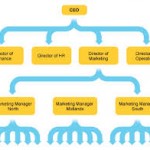“No cord nor cable can so forcibly draw, or hold so fast, as love can do with a twined thread.” (Robert Burton, 1577-1640, English writer and clergyman, from The Anatomy of Melancholy, written 1621-51.)
 Overview
Overview
Love is a strange word to use in the context of business and management, but it shouldn’t be.Love is a normal concept in fields where compassion is second-nature; for example in healthcare and teaching.
For those who maybe find the concept of ‘love’ too emotive or sentimental, the word ‘spirituality’ is a useful alternative. Spirituality is a perspective in its own right, and it also represents ideas central to love as applied to business and organisations, ie., the quality of human existence, personal values and beliefs, our relationships with others, our connection to the natural world, and beyond. Some people see love and spirituality as separate things; others see love and spirituality as the same thing. Either view is fine.
In business and organisations ‘love’ and/or ‘spirituality’ mean genuine compassion for humankind, with all that this implies. We are not talking about romance or sex. Nor are we referring to god or religion, because while love and spirituality have to a degree been adopted by various religious organisations and beliefs, here love and spirituality do not imply or require a religious component or affiliation at all. Far from it. Anyone can love other people. And everyone is in their own way spiritual.
Given that love (or spirituality, whatever your preference) particularly encompasses compassion and consideration for other people, it follows that spoiling the world somewhere, or spoiling the world for future generations, is not acceptable and is not a loving thing to do.
Love in business and work means making decisions and conducting oneself in a way that cares for people and the world we live in.So why is love (or spirituality) such a neglected concept in business?
How love, compassion and spirituality became unfashionable in corporations
 Leaving to one side the obvious associations with office romance and sexual harassment (if you run a session on this you will need to get any nervous giggles and innuendos out of the way first), it’s likely that love and spirituality became something of a taboo in corporations because 20th century business was largely concerned with ‘left-side brain’ perspectives, for example: performance management, critical reasoning, total quality, strategic planning, financial results, profit, etc.
Leaving to one side the obvious associations with office romance and sexual harassment (if you run a session on this you will need to get any nervous giggles and innuendos out of the way first), it’s likely that love and spirituality became something of a taboo in corporations because 20th century business was largely concerned with ‘left-side brain’ perspectives, for example: performance management, critical reasoning, total quality, strategic planning, financial results, profit, etc.
These are necessary aspects of good business and management, but they are fundamentally dispassionate. Also they tend to be ‘male-oriented’ areas. Not always, but they tend to be so, probably because men are generally more prone towards left-side-brain thinking and working. Historically men dominated the business landscape, and still do today to an extent. Not surprisingly then male-oriented ideas and priorities – especially dispassionate left-side-brain factors – have tended to dominate business and organisations.
Conversely love, compassion and spirituality are generally perceived to be female traits. Men are less likely than women to demonstrate loving, compassionate, spiritual behaviour because of cultural and social expectations, especially when reinforced by the business traditions already mentioned.
Additionally, in some cases successful business people owe much of their success to a personal drive borne of insecurity – the motivation to fill a gap or want, which can manifest as relatively unloving, dispassionate behaviour. Some successful people seem to suppress their spirituality, and to actively resist love to the point that they cannot even discuss it.
Where unloving dispassionate behaviour exists in a business leader, whatever its cause, this unavoidably sets the tone for the whole organisation to be unloving and uncaring, and devoid of spiritual awareness. If this situation is replicated across very many large organisations, as arguably it has been during the 20th century, then inevitably business and work as a whole tends to be characterised in the same way – as unloving and uncaring, and certainly not spiritual.
I’m not saying that the western world is run by a load of emotionally insecure mentally dysfunctional ruthless men (although I bet we’ve all worked for at least one of them in our time), but arguably there are certain correlations between aggressive results-driven male behaviour, the short-term business success demanded by western economic systems, and the organisational and economic cultures that arose and endured from ‘successful’, dispassionate anti-spiritual (and mostly male) leadership. I should also make the point that dispassionate results-driven behaviour is not the exclusive domain of men. Many successful women in business (and politics) have had to wear the trousers, if not full the battledress, to beat the men; at a man’s game, in a man’s world.
Let’s acknowledge also the reality that a methodology based on cold-hearted logic and dispassionate decision-making can produce very effective results, especially short-term, and where clinical leadership is required to overcome great challenge or difficulty. Moreover tyrants and bullies sometimes succeed. Some even achieve long-term success (according to their own definition of the word success). And arguably certain dispassionate methods, where people and environment are not affected, are a perfectly appropriate part of the business management mix.
However, unloving uncaring methods, which tend to predominate in organisations and to be passed on through successive leadership generations, are not the entire and only way to run a business or organisation.
Compounding the situation, the historical prevalence of dispassionate leadership, unloving ideas, and uncaring behaviour in organisations has tended to determine that reward systems and training and development methodologies have been correspondingly dispassionate, (staff and suppliers basically do as they are told after all), and so the whole selfish cycle reinforces itself.
Not surprisingly therefore, ideas about loving people, being compassionate and spirituality are unlikely to appear in many management training manuals or training courses. Nor are the principles of genuine tolerance and selfless giving, or the values of forgiveness, or of nurturing your own spirit, because after all we must love ourselves before we can unconditionally love everyone else, and what’s the point of loving yourself if the idea of loving anyone else is a totally alien concept in the conventional corporate world?
People who extol the virtues of love and spirituality in organisations have until recently largely been regarded as cranks – not because love and spirituality doesn’t work – but because organisations, and also the developed western economic world, have evolved to ignore and exclude the deepest of human feelings and needs. Which when you think about what we actually all are, and what we actually all need as people, is a bit strange and a bit daft.
Work and organisations in recent times have simply not aligned with some of humankind’s most basic needs – to be loved, and to find our own purpose and meaningful connections in life, which often brings us full circle to loving and helping others. For a hundred years or more, millions upon millions of people who need love and spiritual meaning like they need food and drink, are denied these basic life requirements at a place that occupies the majority of their useful existence (their work), because love and spirituality (and all that these words represent) seemingly don’t feature on the corporate agenda.
however..Yes. However. As we know, things are changing.
People are most certainly now seeking more meaning from their work and from their lives.
People in far flung exploited parts of the world now have a voice, a stage, and an audience, largely enabled by technology and the worldwide web.Customers, informed by the increasing transparency and availability of information, are demanding that organisations behave more responsibly and sensitively.Increasing numbers of people are fed up with the traditionally selfish character of corporations and organisations and the way they conduct themselves.
The growing transparency of corporate behaviour in the modern world is creating a new real accountability – for the organisations which hitherto have protected the self-interests of the few to the detriment of everyone and everything else.Now, very many people – staff, customers, everyone – demand and expect change.Leaders need now to care properly for people and the future of the planet, not just to make a profit and to extract personal gain.
And so businesses and corporations are beginning to realise that genuinely caring for people everywhere is actually quite a sensible thing to do.It is now more than ever necessary for corporations to make room for love and spirituality – to care for people and the world – alongside the need to make a profit.
Love, compassion, and spirituality – consideration for people and the world we live in – whatever you choose to call it – is now a truly relevant ethos in business and organisations.
The concept of love and spirituality in business is not a new one
 Love, compassion, spirituality, and real ethical principles (to some a modern interpretation of the preceding concepts), actually provided the platform for the formation and success of many very large and famous corporations.Dating back to the 18th and 19th centuries some very big businesses were originally founded on loving and spiritual principles.
Love, compassion, spirituality, and real ethical principles (to some a modern interpretation of the preceding concepts), actually provided the platform for the formation and success of many very large and famous corporations.Dating back to the 18th and 19th centuries some very big businesses were originally founded on loving and spiritual principles.
For example the early huge Cadbury and Rowntree British enterprises were founded by Quakers and run on far more compassionate principles than we would consider normal in business today.High finance and loving principles rarely appear in the same sentence now, but many regional banks, long since swallowed by the multi-nationals, were once Quaker businesses, run on caring principles. The Pease Company which effectively pioneered the railway industry was also a caring Quaker business.
This is not a soapbox or a recruiting post for the Quaker movement – not least because certain Quaker-founded organisations very quickly sacrificed their caring principles in the quest for greed and power. It just happens that some parts of Quaker business history provide good examples of managing corporations successfully, while at the same time leading and managing and making decisions with love, compassion and great care for the world.
We can also look to longstanding examples of co-operatives, employee ownership organisations, mutuals and credit unions becoming increasingly successful in modern times. Many of these organisations openly advocate and support more caring and sharing ideals that place people and ethics ahead of profit, and significantly some are now beginning to demonstrate that a more caring philosophy can translate into competitive advantage, and better commercial performance.
In particular, the extension of the principles beyond any religious association – especially into areas of co-operatives and employee ownership organisations – because as already stated, being loving and spiritual is not dependent on being religious or believing in a god of any sort. Love, compassion, spirituality and ethics in business are not dependent on membership of a group or sect. Anyone can be loving, compassionate, spiritual and ethical; in fact most people are – it’s just that big corporations have tended to require people not to be.
Then as now – in fact even more so now – you don’t need to go to church or to be a member of a particular religion in order to love other people, to act ethically and honestly, and to consider the needs of other people while you pursue (quite reasonably) what you need yourself. This includes loving yourself and striving to be a loving compassionate forgiving person, even if the organisation around you hasn’t yet seen the light. Be assured, it soon will do.
As we know, management ideas tend to be cyclical, and this is a case in point: Love and Spirituality are back in business.
Love in business is becoming a popular concept again
 There are increasing numbers of writers, gurus and now even a few business leaders who advocate greater love, compassion and spirituality in corporations.
There are increasing numbers of writers, gurus and now even a few business leaders who advocate greater love, compassion and spirituality in corporations.
There are also various interpretations of these ideas about love and ethics, about compassion and spirituality. This is fine. It’s normal for any significant concept to have several interpretations, and these reflect the different ways of applying the concept in different situations.
Some interpretations have a compassionate or spiritual foundation; others are quite rightly incorporated within wider issues of corporate social responsibility and ethical business. Other ideas approach the concept from the environmental angle, or sustainability, or ‘fair trade’.The challenge for modern managers and leaders to develop an interpretation of love and spirituality that will work for your own organisational situation.
Here are some ideas about love in business and management, from different perspectives. They are two different interpretations. Hopefully they will help you see ways that love and compassion and spirituality, which are tricky to measure and describe in tangible specific terms, can be applied in a practical sense in work and organisations.
Barbara Heyn
Barbara Heyn sees love and spirituality in organisations from the perspective of feminine instincts and behaviours. This is not to say that men are useless at it; not at all: men, like women, can actually do anything they put their minds to. Everyone can.
The concept of ‘feminine spirit’ emphasises that the biggest challenges in modern work and organisations respond to what we traditionally consider to be ‘female’ strengths and styles.
Globalisation is creating these new organisational challenges:
- Managing and developing global teams – which requires far more sensitive treatment than traditional localised structures
- Approaching cultural diversity as a strength not a hindrance – which requires great perception, awareness and openness to possibilities
- Creating inclusive responsible plans, and making ethical decisions – which requires a strong sense of what is right and good, including compassion, humanity, and spiritual connection
Most of this is traditional ‘female’ territory, but it must now part of the ‘male’ compass too, because these are the big issues facing all managers, leaders and organisations today.
As such, this is a call for everyone in management and business to be more loving and spiritual – to be more sensitive and understanding and compassionate – and a warning to all paid-up members of the Genghis Khan School of Tyrannical Leadership (male or female) to adopt more ‘feminine’ ways of doing things.
Love in business. A novel concept. Most of us are probably used to a traditional culture at work where ‘proper’ reserved behavior is expected. People keep their distance and approach work and relationships with a sense of formality.What if that paradigm were to shift towards a more compassionate and spiritual model?
In the past, traditionally male behaviors such as tough-minded decision-making and competitive aggression were the standard. At job interviews and when assessing performance and potential, leaders would assess whether the employee had ‘fire in his belly’ or was a fist-pounding-on-the-table kind of guy or gal. There was little tolerance of sensitivity, never mind tears. Now however a sea-change is occurring that recognises the value in management and leadership of feminine traits such as warmth, affection, nurturing and intuition.
Some would identify this move as introducing love into the workplace.In fact, love flows naturally when you create a space for it. People are naturally inclined to good. It’s the business world that makes us resistant and sceptical.
If you are open and accepting, people can feel comfortable around you. People feel better when they are allowed and encouraged to connect on a deeper level with others, especially with managers and superiors. Fear and anxiety is no help in organizations. Connecting openly dispels anxiety and makes for harmonious relationships. An increased sense of humanity and trust positively impacts the bottom line, because people – and entire organizations – work far better when folk are happy.
Here are some pointers for creating a humane and productive business environment, for anyone who seeks to make a positive difference in their work:
1. Establish a collaborative mindset
 Your peers can be an excellent support system. View your colleagues as potential allies rather than threats – especially people in ‘warring’ departments. Ask for their opinions and listen to what they have to say. Incorporate their input into your decision making. Work on inclusion and resist exclusion.
Your peers can be an excellent support system. View your colleagues as potential allies rather than threats – especially people in ‘warring’ departments. Ask for their opinions and listen to what they have to say. Incorporate their input into your decision making. Work on inclusion and resist exclusion.
Business processes often encourage unhealthy competition, exclusion, alienation, lack of consultation and non-collaborative behaviors, so look out for these negative situations, and use collaboration and cooperation to remove tensions.
Look out especially for policies and systems that discourage (unintentionally or intentionally) collective working and team-work, especially between departments.
In the belief that it raises overall performance standards, certain leaders encourage unhealthy competition and ‘free-market’ methods which are designed to see only the best performers survive, leaving less experienced or less capable people to struggle. Of course this can raise performance at the top level, but it’s not a recipe for building strengths in depth, nor for organic growth and self-sufficiency throughout the organization.
In such environments traditionally female strengths such as relationship building, empathy and listening skills are suppressed if you allow them to be, so instead consciously use these capabilities.
The ability to work in partnership and collaborate with others is a behavior that should be encouraged, rewarded and leveraged.Foster collaboration ahead of competition.
2. Reach out to others
Find ways to connect personally with others on an honest human level. Ask sensitive questions and identify common areas of interest. Proactively look for opportunities to help team members in a meaningful way.
 Do something outrageously kind for a co-worker with no expectation of anything in return. Maybe unexpectedly treat the colleague ahead of you in the cafeteria line to lunch. Just for the heck of it. Throw surprise parties for people, or baby showers (US-speak I know..) for soon-to-be moms and dads.
Do something outrageously kind for a co-worker with no expectation of anything in return. Maybe unexpectedly treat the colleague ahead of you in the cafeteria line to lunch. Just for the heck of it. Throw surprise parties for people, or baby showers (US-speak I know..) for soon-to-be moms and dads.
When engaging with anyone – managing, co-working, collaborating, networking, directing, following, whatever – focus on what you can do to benefit the other person, not vice versa. Your positive, genuine efforts will have a lasting impact.
Some people use the word ‘Karma’ in referring to this sort of concept, and while Karma has other deeper and complex meanings in Buddhist and Hindhu ideaology, one of the central principles is quite irresistible when you get the habit: namely that people who do good things generally find that they experience good things as a result. The universe – or whatever life force is out there – does seem to keep checks and balances..
3. Use your intuition
There’s much truth to the concept of ‘female intuition’. Intuition is invaluable especially in dealings with people. This skill isn’t limited to the female gender. Men have it too if they simply tune into it, rather than denying its existence or relevance as can be the tendency.
Take note of your physical and emotional feelings associated with intuition. Your hunches are often correct and are based on information that may not be readily apparent to your consciousness. We all know deep down whether something is right and good.
You develop your intuitive abilities by first of all accepting that you have them, and then by practicing paying attention to your feelings. Trusting your intuition is a wonderful way to enhance your decision-making skills. Listen to your instincts and afterwards, debrief with a trusted colleague or mentor. What decisions did you make? What were the repercussions of these? Do you notice any patterns? Does your intuition play a larger role in certain areas, (people, processes, teams, aims, tactics, problem-solving, etc) so that you might transfer the intuitive approach to other aspects of your decision-making?
Note the outcomes of your intuitive decision-making and capture them in writing. You don’t need to write a book – just jottings or little diary notes suffice for many people. This way you’ll remember things and be able to refer back to them, which means you are more likely to spot the connections between your intuitive feelings and actual results, which helps develop intuitive ability. It’s in all of us, or the human race would not have survived. Did you ever see a caveman with a spreadsheet or a psychometric test? Of course not – they used their instincts and intuition to succeed and survive. Or a big stick of course, but we don’t want to go back to that..
4. Meditate daily
 First we need to debunk a few myths about meditation. For example meditation is not just for hippies and Buddhists, and you don’t need to adopt that funny cross-legged pose and fill the place with patchouli smoke to do it.
First we need to debunk a few myths about meditation. For example meditation is not just for hippies and Buddhists, and you don’t need to adopt that funny cross-legged pose and fill the place with patchouli smoke to do it.
Meditation, like love and spirituality, is an option that’s available to us all. Anyone can do it. It’s essentially a deeper state of thought and relaxation than we normally achieve, because simply we normally don’t bother. If you put your mind to it, literally, you can do it and get better at it, and maybe one day even try the cross-legged thing too. And there are plenty of other fragrances if patchouli doesn’t do it for you.
Incidentally the reason why darkened rooms, fragranced candles or incense and soft music or other soothing sounds are used in meditation, is similar to why we bathe toddlers and read them a story before bed – it all helps condition and trigger the mental response towards the intended feeling and behavior. Logically if you want to relax, it helps if the body is encouraged to do so through as many senses and sensations as possible – your brain is part of your body remember – if your body is being distracted and kept ready for action because of lots of simulation, then relaxation and meditation is a bit trickier to achieve. Instead, do things to relax your body, and your brain will relax too. And don’t get the children all excited before bedtime or they won’t go to sleep..
Meditation, aside from being good for health, healing, de-stressing, and general relaxation, is an extremely powerful way to heighten your connection to your intuition, and is also remarkably good for bringing forth your ‘feminine’ aspects (for men and women alike).
When you meditate you help your mind and body to be ‘centred’ again – to restore your natural balance. In this way helps awaken and enhance ‘feminine’ strengths that we all possess to one degree or another, that are commonly suppressed by the pressures of work and life.
Meditating is bit like running a ‘full system restore’ on a personal computer – it’s cleansing and helps get us back closer to our ‘factory settings’.
Start by meditating once a day for ten minutes. A quiet darkened room helps, but really you can do it anywhere – even in the car, although best not while driving. It’s even possible after a little practice to sneak a quick two minutes of meditative re-charge or relaxation at your desk in front of the PC any time you feel the need. Obviously the environment has an effect on the ease and depth of experience you can achieve, hence why a darkened room is a good idea for beginners or serious sessions.
If you fancy it, lighting a scented candle or playing some soothing sounds can help. The crackle of an open fire is good for some people. The sound of water and waves also help. Whatever, it’s a matter of what makes you feel comfortable. Focus on your breathing and if thoughts come to mind, don’t fight them, just accept them, and then let them go.
View your mind as a chalkboard (or wipeboard if you prefer a modern slant) and mentally erase all thoughts from the space. As a beginner, if you are able to hold your mind clear of thoughts for one to two minutes, you are doing great. Our ‘monkey minds’ are constantly jumping around and it takes a bit of discipline and practice to slow or eliminate our thoughts. With practice and repeating the sensory ideas that work for you, you will soon be meditating like a Buddha.
Build up to meditating twice a day for ten minutes, and any other time you feel the need to re-charge or relax. You’ll find yourself grounded and attuned more closely to your feelings. And the incense will make you smell great.
5. Build your confidence
 Appreciate what you have to offer and encourage open dialogue with those who may share different strengths. Professionals who are truly comfortable in their own skin are often the most competent and humble. By valuing your inner worth, it will be much easier to rid yourself of jealousy and competitive thoughts.
Appreciate what you have to offer and encourage open dialogue with those who may share different strengths. Professionals who are truly comfortable in their own skin are often the most competent and humble. By valuing your inner worth, it will be much easier to rid yourself of jealousy and competitive thoughts.
Rise above petty conversations at work. Refrain from initiating or contributing to gossip. Judge no-one. If you need to assess situations and performance focus objectively on behavior and causes rather than subjective personal criticism.
Feel comfortable wearing clothes that express your personality. Go ahead and don a soft blouse, flouncy skirt and sandals that set off freshly painted toenails. Women can do this too…
It’s a question of celebrating your personal style – even if the dress code for your situation is a bit restrictive – find ways to be yourself.
Relaxing and lightening up is more helpful for confidence than taking yourself seriously. Remember the laid-back teachers at school who were always calm, and who never seemed to lose their temper at anything? The ones who always had that air of confidence? Being relaxed and calm about things – ‘counting to ten’ instead of blowing up – is a way to build confidence, as much as it is a sign of confidence. You can be the same.
In addition, a little self-deprecating fun can lighten any situation. Someone who can break the ice – or the tension of a difficult moment – is regarded as a mature and calming influence. People who cannot take a joke might be stern, but they are almost always regarded as lacking in self-assurance too. If you have the strength to enjoy a laugh at your own expense you automatically exude confidence.
6. Put yourself out there
 Take a risk. When it comes to connecting with others, challenge yourself outside your comfort zone. Although this may go against the grain in traditional corporations, initiate emotional engagement with other people, and maybe even a bit of physical contact – within acceptable boundaries of course. It’s safest with someone of the same gender, unless you know the other person well.
Take a risk. When it comes to connecting with others, challenge yourself outside your comfort zone. Although this may go against the grain in traditional corporations, initiate emotional engagement with other people, and maybe even a bit of physical contact – within acceptable boundaries of course. It’s safest with someone of the same gender, unless you know the other person well.
Physical contact is an immensely powerful thing. Many people really enjoy a good hug – in fact sometimes it’s the only cure when people are upset or angry. Physical contact does however carry certain risks in the workplace because of the risks misinterpreting signals, so if in doubt don’t use it. Nevertheless there are times when you can trust your instincts and reach out to people in this way, even if it’s a gentle touch on the arm, or a pat on the back.
Being friendly though is perfectly safe. Go out of your way to greet a colleague you haven’t seen in a while. Be the first to say hello. Never ignore someone because you think they ignored you first – they probably never even noticed you because they were still thinking about the big game last night, or whether they left the oven on.
The world is full of people who wait for the other person to initiate contact. No wonder people don’t generally communicate well – they are all too busy thinking they’ve been ignored, when in fact nothing can be further from the truth. Everyone longs for the other person to initiate content and give them a big friendly smile.
And that’s the way it starts – then you do begin to do it more often, and then other people try it too because they see it’s safe and nobody dies, and before long everyone on the floor is happy to make the first move, then it spreads to the whole building. Because everyone realises it’s okay to be open and friendly.
Individuals at all levels of an organization welcome being treated as a full person, not just a workmate or a phone extension, or an email address.
So put yourself out there: approach people as people – in a genuinely friendly way – be affectionate and caring – through hugs and pats when it’s okay, or simply through a big warm smile.
7. Do the right thing because it’s the right thing to do
Demonstrate integrity and stand up to unethical comments or decisions. Move past your own discomfort when it comes to doing the right thing, even (and especially) when no one is watching.
 Challenge that inappropriate joke or derogatory remark. If it’s wrong don’t laugh because everyone else does and it’s difficult not to. It’s not always necessary to challenge things vocally – sometimes staying silent is challenge enough.Stand up for people who are not represented in the conversation. You’ll be recognised as a leader for enhancing the conscience of the group or organisation.
Challenge that inappropriate joke or derogatory remark. If it’s wrong don’t laugh because everyone else does and it’s difficult not to. It’s not always necessary to challenge things vocally – sometimes staying silent is challenge enough.Stand up for people who are not represented in the conversation. You’ll be recognised as a leader for enhancing the conscience of the group or organisation.
Sometimes it’s very difficult indeed to do the right thing, especially if the whole organization and all the people around you are advocating and accepting something that’s wrong. But often all it takes is one brave soul to ask a sensible question, “Do we all really believe that this is the right thing to do? – I mean is this really ethical and good?” Or to say, “I’m really sorry but actually I can’t go along with that because to me it’s not right.”
And then lots more people will feel strong enough to say they don’t agree either, and then you have a real basis for building something good and ethical. Sometimes all it takes is one brave soul, and that can be anyone. It can be you.
Use your deepest instincts to decide what is right, to feeling centred and confident, and to connect with and value other people. These are the behaviors which enable organizations to respond successfully to the challenges of the modern world.
It’s not about table-thumping or shouting, and it’s not about costs and profit. It’s about fundamental spiritual things like love, caring for and respecting people (including yourself); the quieter gentler ‘feminine’ strengths and skills that all of us possess – men and women – and which we all must now to be able to use.
Organisational culture-shifts happen not because someone at the top makes a pronouncement – a culture-shift happens when the attitudes and behaviors of their people change.At the root of any successful change you will increasingly find the qualities of love and trust, which together create the freedom for us to make the right decisions, to connect with others, to challenge and to innovate.
A trusting organization that values and encourages the softer ‘feminine’ traits among all of its people is one that leverages diversity and harmony. And that, in anyone’s book, makes good business sense.
Extract from businessballs.com article